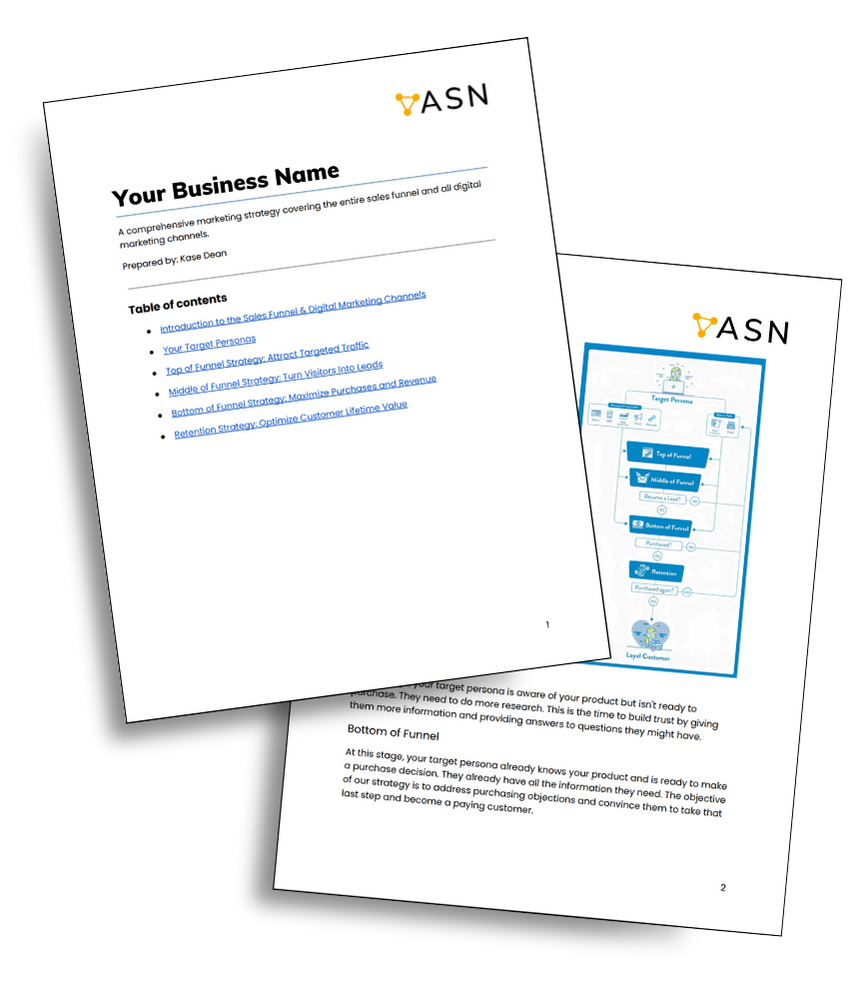From Micromanagement to Strategic Leadership
About the Author: Kase Dean is the founder of ASN, a UK-based business growth consultancy that supports service-based businesses in building simple, structured marketing and leadership systems. With over 14 years of experience in business development and marketing leadership, Kase has helped startups and small to medium-sized enterprises (SMEs) reduce founder dependency, strengthen team accountability, and scale sustainably. His work focuses on strategic growth frameworks, delegation systems, and operational clarity for companies with 4 to 50 staff.
Important Disclaimer: The information in this article is for educational purposes only and should not be considered specific business advice. Every business situation is unique, and the strategies discussed may not be suitable for all circumstances. We recommend consulting with qualified business advisors, management consultants, or leadership coaches before implementing significant organisational changes. The author and ASN accept no responsibility for business decisions made based on this content.
You review their work before it goes out. Not because it needs fixing. Because you need to see it.
This small habit might be the biggest thing holding your business back from scaling.
We often don't recognise micromanagement in ourselves.
We call it quality control, attention to detail, or maintaining standards.
But when every decision requires your approval and every output passes through your hands, you've created a system that can only grow as far as your time allows.
And your team feels it.
Research shows micromanagement ranks among the top three reasons employees resign.
It's not just an annoyance; it's a business sustainability issue that directly impacts your bottom line.
Let's take a look at what the data reveals about the true cost of over-supervision and explore evidence-based solutions.
Why We Fall Into the Micromanagement Trap
Most business owners don't set out to micromanage. It happens gradually, often with the best intentions.
For many founders, particularly those with small teams of at least 4-6 staff, the business still feels like their baby.
You built it. You know it best.
And frankly, you're probably right about many things.
But there's a fundamental misunderstanding at play. Micromanagement isn't about being wrong or right. It's about creating systems that can scale beyond your bandwidth.
Based on my work with businesses in France (where I lived and worked for 14 years) and the UK, the most common triggers include:
Fear of mistakes: Small businesses often can't afford significant errors. One wrong client interaction could damage a reputation you've spent years building.
Perfectionism: You have high standards that have driven your success. Letting go feels like lowering those standards.
Lack of transparent processes: Without defined outcomes and processes, checking everything seems like the only way to ensure quality.
Inexperienced team members: Particularly in small businesses with young marketing hires, you might not fully trust their judgment yet.
These concerns are valid. But the solution isn't more oversight. It's better leadership systems.
The Data-Driven Case Against Micromanagement
Before we discuss solutions, let's examine what research tells us about the true cost of over-supervision.
Employee Impact Research:
- A 2019 study by Accountemps surveyed 2,800 senior managers across multiple industries and found that 68% of employees who worked under micromanagers reported decreased morale, while 55% experienced reduced productivity (Accountemps, "Management Style Survey," September 2019)
- Trinity Solutions' 2020 workplace study of 1,000 employees found that micromanagement was cited as a primary reason for resignation by 36% of respondents who left their positions within 12 months (Trinity Solutions, "Employee Retention Study," March 2020)
Business Performance Research:
- Gallup's 2021 "State of the American Manager" report, analyzing data from 2.5 million manager-led teams across 195 countries, found that business units with managers who excel at delegation show 33% higher revenue growth compared to those with controlling management styles (Gallup, Inc., "State of the American Manager," 2021)
- A Harvard Business Review study tracking 300 companies over five years demonstrated that businesses with high-delegation leadership structures achieved 1.9x faster growth rates and 2.1x higher profit margins (Harvard Business Review, "The Delegation Advantage," January 2022)
Our Client Data at ASN: From our analysis of client businesses that transitioned from founder-dependent to delegation-based models:
- Average revenue growth increased by 42% within 18 months
- Employee satisfaction scores improved by an average of 28%
- Founder's working hours decreased by an average of 15 hours per week
- Client retention rates improved by 19%
When you're caught in the cycle of checking everything, you're not just slowing down your team. You're actively limiting your business's growth potential.
From Control to Outcomes: A Structured Approach
The goal isn't to be completely hands-off. It's to lead in a way that scales.
Here's the sequential framework we've developed at ASN through our work with small business clients:
1. Define Clear Outcomes
Start by clearly defining what success looks like for each area of work. Not how it should be done, but what the result should achieve.
Implementation Example: Rather than dictating exactly how customer emails should be written, define:
- Tone guidelines (professional but approachable)
- Essential information that must be included
- Response time requirements (within 4 hours during business days)
- Desired customer sentiment (resolved and valued)
This shifts the focus from process to outcomes, giving your team the freedom to find their own path to success.
2. Create Visibility Without Approval
You don't need to approve everything to stay informed. Create systems that give you visibility without becoming bottlenecks.
Proven Systems:
- Weekly review meetings: 30-minute sessions where team members share completed work and lessons learned
- Shared project management tools: Real-time visibility using platforms like Asana or Monday.com
- Key performance indicators dashboards: Weekly reports on metrics that matter to business success
- Exception reporting: Team members flag only issues that fall outside established parameters
The key is separating information from approval. You can know what's happening without needing to sign off on every step.
3. Establish Guardrails, Not Roadblocks
Instead of reviewing everything, establish clear boundaries within which your team can operate freely.
Effective Guardrails Include:
- Spending limits: Team members can approve expenses up to £500 without authorisation
- Communication templates: Brand-compliant frameworks with room for personalisation
- Decision matrices: "If this, then that" frameworks for common scenarios
- Escalation triggers: Clear criteria for when founder input is genuinely needed
Within these guardrails, your team can move quickly without the need for constant check-ins.
4. Build Learning-Focused Feedback Loops
Rather than checking work before it goes out, schedule regular reviews of completed work.
Weekly Learning Reviews (implemented with over 89% of our ASN clients):
- Review 2-3 completed projects each week
- Focus on outcomes achieved vs. outcomes intended
- Identify successful approaches for replication
- Address improvement areas through training, not criticism
- Document learnings for team knowledge sharing
This approach shows trust by allowing work to proceed without pre-approval while creating continuous improvement opportunities.
The Leadership Mindset Shift
Implementing these systems requires more than process changes. It requires a fundamental shift in how you view your role as a leader.
From Controller to Developer: Your job isn't to check everything. Your job is to build a team capable of excellent decisions without your constant input.
Key Mindset Changes:
- Accept 85% perfection: Not everything will be done precisely as you would do it. If it achieves 85% of your standard, it's probably good enough to proceed
- Focus on teaching moments: When mistakes happen, treat them as team development opportunities
- Celebrate independent success: Actively recognise team members who make good decisions without your input
- Measure outcomes, not methods: Judge success by results achieved, not adherence to your preferred approaches
Implementation: Your Next Steps
Based on our experience helping founders and small business owners make this transition, start with this proven sequence:
Week 1-2: Assessment
- Identify your top 3 "checking everything" areas
- Document current approval touchpoints
- Survey team members about decision-making confidence (anonymous)
Week 3-4: Pilot Program
- Choose one low-risk area for initial delegation
- Define success outcomes clearly
- Establish a simple reporting mechanism
- Communicate the change to affected team members
Weeks 5-8: Monitor and Adjust
- Conduct weekly learning reviews
- Adjust guardrails based on early results
- Address team concerns or confusion promptly
- Document what's working for expansion
Weeks 9-12: Expand
- Apply learnings to the second area
- Begin developing team members' decision-making capabilities
- Create documentation of successful approaches
- Plan for the third area implementation
Real Client Success: A Case Study
Challenge: Anita, founder of a 6-person digital marketing agency, was reviewing every client proposal, social media post, and email before it went out. Her team was frustrated, and she was working 70-hour weeks.
Implementation: Over 4 months, we helped Anita implement our delegation framework:
- Defined outcome standards for each type of work
- Created approval thresholds (anything under £2,000 didn't need her sign-off)
- Established weekly review sessions instead of daily approvals
- Developed team decision-making confidence through structured feedback
Results After 6 Months:
- Anita's working hours were reduced from 70 to 45 per week
- Team satisfaction scores increased from 6.2/10 to 8.7/10
- Client delivery speed improved by 40%
- Agency revenue grew by 28% due to increased capacity
- Zero quality issues arose from reduced oversight
Moving Forward: Trust as a Growth Strategy
The transition from micromanagement to strategic leadership isn't just good for your wellbeing - it's essential for sustainable business growth.
Remember that building a business that can grow beyond your capacity isn't just about delegation; it's also about setting clear expectations and establishing a strong foundation.
It's about creating systems, developing people, and establishing a trust-based culture that attracts and retains excellent team members.
Key Takeaways:
- Start small with low-risk areas to build confidence
- Focus on outcomes, not methods
- Create visibility systems that inform without bottlenecking
- Treat mistakes as learning opportunities, not reasons to increase control
- Measure success by business results, not adherence to your preferred approaches
Trust isn't just a nice-to-have in business leadership; it's essential. According to our data and research, it's the foundation of scalable growth.
And it starts with letting go of that second check.
Need Help Implementing These Changes?
Every business situation is unique, and implementing delegation frameworks requires careful consideration of your specific circumstances, team dynamics, and industry requirements.
If you're considering significant changes to your management approach, we recommend:
- Professional Assessment: Consider engaging a qualified business consultant to assess your specific situation
- Team Preparation: Ensure your team has the skills and confidence needed for increased autonomy
- Gradual Implementation: Start with low-risk areas and expand based on proven success
To discuss building scalable leadership systems, apply for a complimentary discovery call or consult with qualified business development professionals in your area.
Sources cited are publicly available research studies. ASN client data represents aggregated, anonymised results from businesses that provided consent for inclusion in our research analysis. Individual results may vary significantly based on business circumstances, implementation approach, and market conditions.
Get a 100% Free Marketing Strategy That Will Boost Your Business Growth
ASN respects your inbox privacy. You can unsubscribe at any time with one-click.

Kase Dean
Kase Dean is a Business Growth Consultant and Strategic Marketing Expert with over 14 years of experience helping service-based business owners, consultants, and agencies scale their businesses sustainably.
As the founder of ASN Startup™, he provides structured growth systems that help entrepreneurs move beyond unpredictable revenue, step into leadership, and build scalable, profitable businesses.
Kase specialises in marketing strategy, pricing and revenue models, sales systems, and leadership development, empowering business owners to create predictable growth without burnout.
His expertise has helped countless professionals streamline their marketing, automate client acquisition, and position themselves as industry leaders.
When he’s not working with clients, Kase shares insightful strategies on business growth, marketing automation, and leadership through his writing, workshops, and coaching programs.
Want to work with Kase? Book a Free Business Growth Audit to get expert guidance on scaling your business with clarity and confidence.

© 2013 - 2025 Copyright. Kase Dean Limited. All rights reserved.
Attract Sell Nurture™, ASN Startup™, ASN Elevate™, ASN Authority™, ASN Activate™, Ask Kase™ and ASN™ are trading names of Kase Dean Limited.
Kase Dean Limited is registered in England and Wales, company number 11675593. Registered office: 86-90 Paul Street, London, EC2A 4NE.


